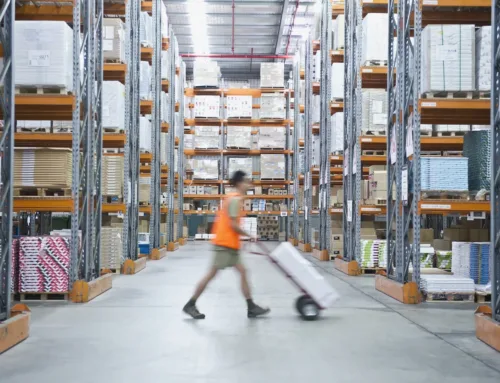Wonolo
Retailers are familiar with the challenges of keeping workers. That difficulty is especially understandable in the wake of the pandemic. However, retailers have been struggling more recently to find workers, too.
Wonolo hears from our customers that despite continuous recruiting efforts, they still can’t find all of the workers they need. Although processes to attract workers and keep them engaged are improving, retailers need people to work right away in order to keep up with demand. What’s more, there’s a lot of competition. Eligible workers for many entry-level retail jobs are being recruited for a variety of non-retail positions that require similar skills. Being understaffed creates high, unnecessary costs. One way to address the labor shortage in retail is by engaging new worker pipelines.
What is the cost of losing retail workers?
In 2021, retailers employed roughly 29 million Americans but statistics show that retail worker turnover was about 65% that same year. To say the least, employee turnover is a huge inconvenience. Worse yet, finding new workers is incredibly costly. The average cost of replacing an employee can range from half of what that position earns in a year to two times the annual salary for that role.
In addition to financial losses, there are other costs associated with employee turnover. Losing star performers can influence team morale, especially if the loss adds to the workload of remaining employees. Moreover, if seasoned employees with vast knowledge of how your business works are leaving, replacing them with new hires only adds to the burden.
How does a lack of retail workers impact customers?
When retailers don’t have enough workers, customer experience often suffers. In a recent survey, 86% of customers said they’d leave a company after two bad experiences. Another survey found that 76% of customers would rather go to a competitor after only one bad experience. It’s reported that avoidable customer experience issues, including those that could be solved with more staff, cause US businesses to lose $35.3B annually due to customer churn.
In addition to bad customer experiences, out-of-stock products create a negative impression on the shopper. With improper staffing, keeping supply and shelves full can be difficult. When an out-of-stock occurs, only 13% of customers wait for the item to be back on the shelf. Meanwhile, 39% switch brands and 32% switch retailers.
Turning to Gig Workers for Short and Long-Term Help

Who are gig workers?
While gig workers have been around for decades, many more came from the Great Resignation, looking for flexibility, autonomy, and opportunity. The growing pool of independent contractors represents different ages and a vast range of skill sets. In 2021, more than 57 million people were gig workers and continue to look for on-demand, short-term, and long-term opportunities.
Can retail workers be found in the gig economy?
Gig workers can fill almost any entry-level job and have the necessary skills for retail, distribution centers, merchandising, and beyond. Using gig work platforms as a staffing pipeline allows your business to expand and contract labor needs to meet the ebb and flow of customer demand. The gig workers you connect with can be engaged during busy periods without a long-term commitment but platforms like Wonolo allow you to connect with workers for all job lengths. Best of all, engaging gig workers on job marketplaces is fast. In many cases, they can be in place in just days or even hours.
Gig Workers for On-Demand Jobs and Long-Term Engagements
 Between the expenses of hiring, onboarding, and training, and the time and costs of an unfilled role, there’s never been a better time to rethink your labor strategy. Gig workers can be used in a pinch for filling on-demand jobs. They can also provide extended aid as a long-term solution for business continuity and growth. While the retail industry may always have volatility, companies that can quickly adjust to changing business needs will be the ones that succeed. By engaging gig workers, retailers can more efficiently adapt. To start connecting with gig workers or simply learn about all your staffing options, connect with the team at Wonolo.
Between the expenses of hiring, onboarding, and training, and the time and costs of an unfilled role, there’s never been a better time to rethink your labor strategy. Gig workers can be used in a pinch for filling on-demand jobs. They can also provide extended aid as a long-term solution for business continuity and growth. While the retail industry may always have volatility, companies that can quickly adjust to changing business needs will be the ones that succeed. By engaging gig workers, retailers can more efficiently adapt. To start connecting with gig workers or simply learn about all your staffing options, connect with the team at Wonolo.






